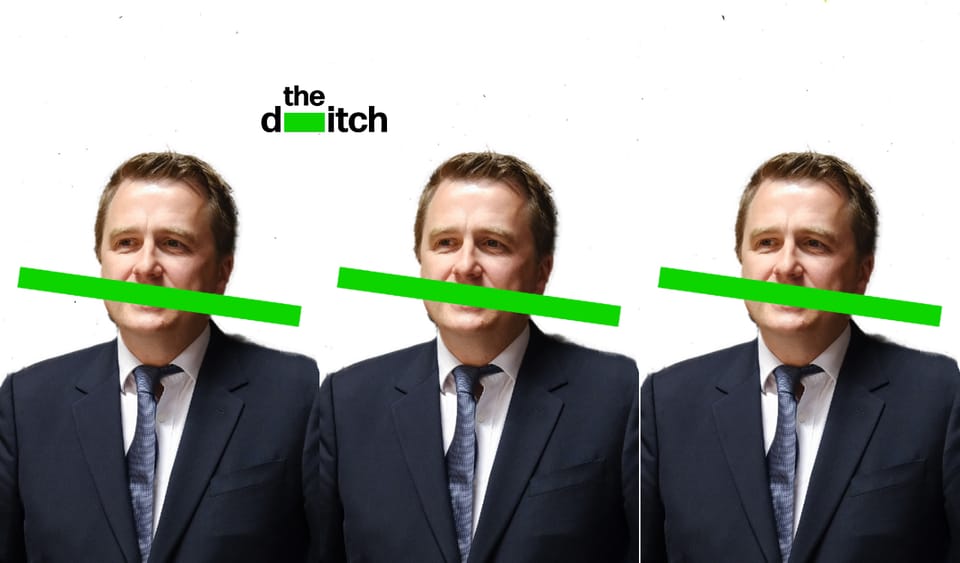A few years back I was spending a lot of time in a house in the Liberties. It was the residence of a woman I was dating and her roommate. I use the word residence because it didn’t feel like a home – it felt like the landlord might choose, at any moment, to turn it into an Airbnb. The living room had the hallmarks of a short-term let: a giant decorative clock with Roman numerals; IKEA furniture that looked like it came straight from a showroom; prints of stock imagery on the walls.
This house was, like so many others in Dublin, a revenue stream with a roof. Sure, people lived there, but it was primarily an investment opportunity for its owner, its inhabitants incidental – if the premises could’ve generated income without them, it would have lain empty. When housing is first a vehicle to make money, its potential to be a home is secondary.
Anthropologist Marc Augé observed that modernity has brought about a world where the lives of ordinary people are spent in settings designed purely for transit and transaction. In a non-place – like an airport, a shopping centre, an office cubicle – human beings are rendered anonymous, disconnected from both others and places. Unlike the locations our ancestors populated – the local pub with familiar faces, the shop whose owner they knew, the public square – in which meaning aggregated over time, non-places are sterile and interchangeable.
Housing across Ireland, and much of Europe and the United States, is increasingly a kind of non-place. Co-living premises, student accommodation repurposed for high-earning professionals in their 30s and 40s, overpriced build-to-rent apartments – all are presented as “increasing supply” and therefore an axiomatic good. But these spaces are intended for people who will only live in them for a mere moment, paying the highest rent that can possibly be extracted, before moving elsewhere.
It isn’t surprising that assets the wealthy use to generate even greater wealth result in alienation among those who live in them. Tenants suffer from what researchers Rachel McArdle and Michael Byrne identified as “rootlessness”, the inability to form attachments with where they live. You can’t for example have a stake in a neighbourhood while stuck in, as former minister for housing Eoghan Murphy put it, some "trendy boutique hotel". Ireland cannot cultivate communities while landlords profit from transience.
The housing emergency is more than a national disgrace that has produced record homelessness and mass suffering. It is an attack on our ability to foster meaning in our lives and to develop communities.
‘Seomraí’: yet more non-places
In the aftermath of World War II, philosopher Martin Heidegger gave a lecture that touched on Germany’s housing crisis at the time. He saw another type of homelessness emerging: modern society, fixated on utility, had forgotten the importance of the relationship between humans and place.
He asked his audience to think about dwelling, why we build things and how the environments we create contribute to our sense of place and identity. He used the example of a bridge: something that makes connections by linking people and transforming human experience. For Heidegger many structures aren't just functional – they help define our relationship with the world. But human beings, he warned, are no longer aware of this when they construct things. And it has consequences.
"In today's housing shortage," Heidegger said, "...residential buildings do indeed provide shelter; today's houses may even be well planned, easy to keep, attractively cheap, open to air, light, and sun, but – do the houses in themselves hold any guarantee that dwelling occurs in them?" To dwell is a way of living authentically – one that connects us to place and to others.
Progress Ireland is a think tank purportedly interested in "good ideas", none of which seem to involve the state getting involved in the provision of housing. It has lobbied government to further deregulate the housing market so granny flats or seomraí can be rented out by homeowners rich enough to buy them at an estimated cost of €70,000. A Red C poll recently published by the Business Post found a majority of respondents in favour of letting landlords rent out these glorified garden sheds.
Consider these constructions. They’re inferior to the real house nearby, one where people dwell rather than pass through. To reside in so-called seomraí is to be trapped somewhere that wasn’t intended for human habitation until housing became so scarce and profitable that a hovel gained market value. Milestones of your life, all playing out, in a rich person’s backyard, next to their dog kennel and weeds.
‘We know what came next’
Ten years ago then housing minister Alan Kelly reduced minimum legal apartment sizes by 27 percent, a decision still harming people today. Kelly had argued the move would make apartments more affordable to develop and that these savings would be passed on to renters.
“This is about delivering good, high-quality, affordable housing in sufficient numbers to meet growing demand, which will also help to reduce rents,” Kelly said in December 2015. “This is a critical component of the solution to homelessness, which is being driven by the large increase in rents.”
We know what came next: minimum standards declined; developers built units hostile to long-term living; rents hit historic highs. Everything got worse and more expensive. A cursory look on Daft.ie displays bedrooms with ovens in them for rent, in some cases for more than €2,000 a month. This is what it means to “increase supply”, making those supplied precarious and denying them the stability to plan a future for themselves.
It isn’t believable that further deregulation would constitute progress for anyone other than our landlord class. It will further reduce housing to pure function – for profit. (And such profits, we’re told, must go up to make it worthwhile for those collecting them.)
A continuum exists, beginning with people who sleep on the streets without access to any shelter, progressing to those in unstable living situations and ending with those fortunate enough to have a place they can truly call home, in which they dwell. Most people under the age of 40 fall somewhere in the middle. This is in service of a property-owning class whose interests government advances.
The places we live need not be just shelter for which we pay a premium. A home, like Heidegger's bridge, should give us meaning, should itself acquire meaning and help us belong. It shouldn’t be a holding cell rented out by people who already own property and used to accumulate further riches.
Relegating ourselves to places where dwelling isn’t possible will further erode the social fabric that binds us together. Because a society of non-places is a non-society: fragmented, rudderless and incapable of the collective action needed to demand a better tomorrow. Or even a better today.


